Optimize male hormones: What nutrition boosts testosterone & performance?
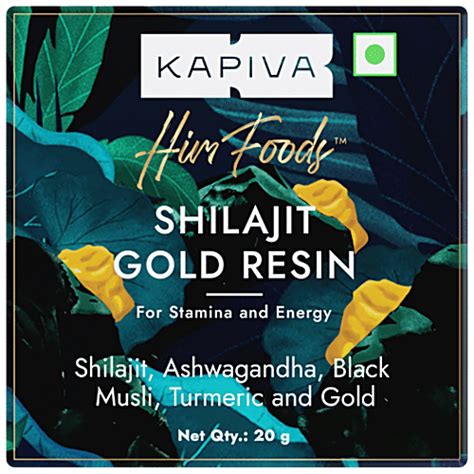
Unlocking Male Vitality: The Nutritional Path to Optimal Testosterone
Testosterone is a cornerstone of male health, influencing everything from muscle mass and bone density to mood, energy levels, and libido. While its levels naturally decline with age, modern lifestyles, stress, and poor dietary choices can accelerate this decline, impacting overall performance and well-being. The good news is that nutrition plays a powerful, often underestimated role in supporting healthy testosterone production. By understanding which foods and nutrients fuel your body, you can take significant steps toward optimizing your male hormones and enhancing your vitality.
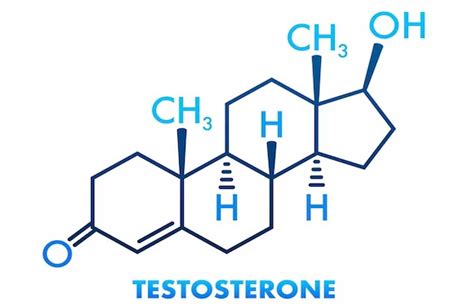
The Foundation: Essential Vitamins and Minerals for Testosterone
Certain micronutrients are critical cofactors in testosterone synthesis and regulation. Ensuring adequate intake of these can make a substantial difference.
Zinc: The Testosterone Mineral
Zinc is arguably one of the most vital minerals for male hormone health. It plays a crucial role in regulating serum testosterone levels. Studies have shown that even a marginal zinc deficiency can lead to a significant drop in testosterone. Foods rich in zinc include oysters (an exceptional source), red meat, poultry, beans, nuts, and whole grains.
Vitamin D: The Sunshine Hormone
Often referred to as a hormone itself, Vitamin D is directly linked to testosterone production. Research indicates that men with sufficient Vitamin D levels tend to have higher testosterone. While sunlight is the primary source, dietary sources like fatty fish (salmon, mackerel, tuna), fortified dairy products, and eggs can help. Supplementation may be necessary, especially in regions with limited sun exposure.
Magnesium: More Than Muscle Function
Magnesium is involved in over 300 biochemical reactions in the body, including those related to testosterone. It helps improve free (bioavailable) testosterone levels by reducing its binding to sex hormone-binding globulin (SHBG). Excellent sources include leafy green vegetables (spinach, kale), nuts (almonds, cashews), seeds (pumpkin, chia), legumes, and whole grains.
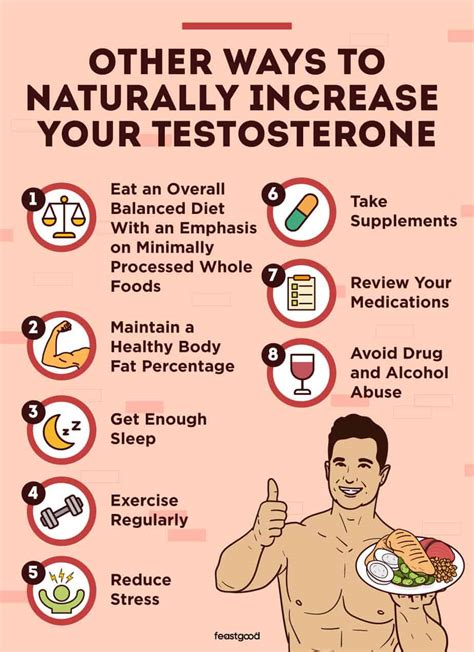
Macronutrients for Hormonal Health
It’s not just about micronutrients; the balance of macronutrients (fats, proteins, and carbohydrates) also profoundly impacts hormonal health.
Healthy Fats: Not All Fats Are Created Equal
Dietary fats, particularly monounsaturated and saturated fats, are essential precursors for hormone production, including testosterone. While trans fats should be strictly avoided, incorporating healthy fats is crucial. Sources include avocados, olive oil, nuts, seeds, and fatty fish (omega-3s are beneficial for overall health and inflammation, indirectly supporting hormone balance).
Quality Protein: Building Blocks for Hormones
Adequate protein intake is vital for muscle repair and growth, which indirectly supports testosterone levels, especially in conjunction with resistance training. Furthermore, amino acids from protein are foundational to many bodily functions. Focus on lean meats, poultry, fish, eggs, and plant-based proteins like legumes and quinoa.
Complex Carbohydrates: Sustained Energy and Hormonal Balance
While low-carb diets are popular, extremely restrictive carbohydrate intake can sometimes stress the body, potentially leading to lower testosterone. Complex carbohydrates from whole grains, fruits, and vegetables provide sustained energy, fiber, and essential nutrients, supporting overall hormonal balance without excessive insulin spikes.
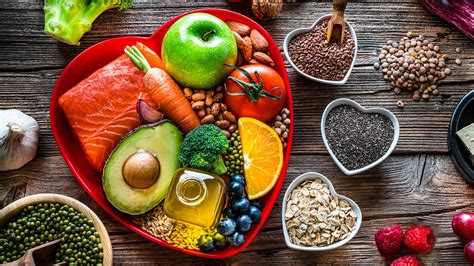
Power Foods to Include in Your Diet
- Oysters: Packed with zinc and selenium.
- Fatty Fish (Salmon, Tuna, Mackerel): Rich in Vitamin D and Omega-3 fatty acids.
- Leafy Green Vegetables (Spinach, Kale): High in magnesium and other vital nutrients.
- Eggs: A complete protein source, containing Vitamin D and healthy fats.
- Avocados: Excellent source of healthy monounsaturated fats.
- Berries: Antioxidant-rich, helping reduce oxidative stress which can negatively impact hormones.
- Garlic & Ginger: Some studies suggest they may have beneficial effects on testosterone.
What to Limit or Avoid
Just as important as what you eat is what you don’t. Certain foods and substances can negatively impact testosterone production:
- Processed Foods & Sugary Drinks: Often high in unhealthy fats, sugar, and artificial ingredients, contributing to inflammation and weight gain, both detrimental to hormones.
- Excessive Alcohol: Can disrupt the endocrine system and impair testosterone synthesis.
- Trans Fats: Found in many fried and processed foods, linked to lower testosterone and poor cardiovascular health.
- Soy Products (in excess): While generally healthy in moderation, very high intake of soy isoflavones has been a point of debate regarding testosterone.
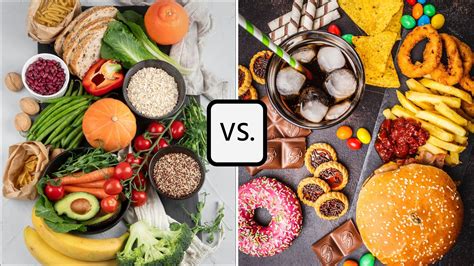
Beyond the Plate: Lifestyle Synergies
While nutrition is a powerful tool, it works best in conjunction with other healthy lifestyle practices. Adequate sleep (7-9 hours), regular resistance training, and effective stress management are all crucial for optimal hormone balance and overall male performance. These factors work synergistically with your dietary choices to create a robust foundation for health.
Conclusion: A Holistic Approach to Hormonal Health
Optimizing male hormones, particularly testosterone, is not about a single magic food or quick fix, but rather a holistic, consistent approach to nutrition and lifestyle. By prioritizing zinc, Vitamin D, magnesium, and healthy fats, alongside quality proteins and complex carbohydrates, you can provide your body with the essential building blocks it needs to naturally support robust testosterone levels. Couple these dietary changes with sufficient sleep, regular exercise, and stress reduction, and you’ll be well on your way to enhanced vitality, performance, and overall well-being. Always consider consulting a healthcare professional or a registered dietitian for personalized advice, especially if you have underlying health conditions.









